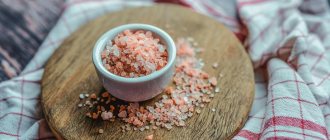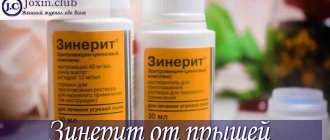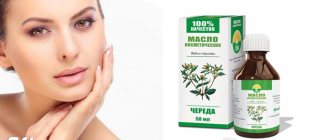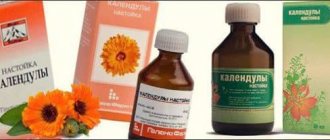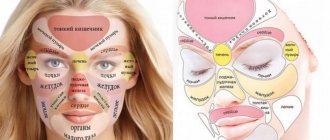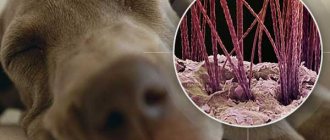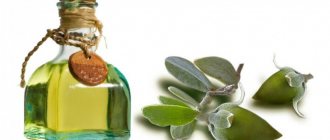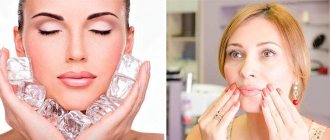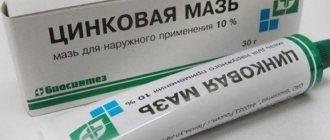The word “alcohol” is inevitably associated with disinfection, even if it concerns the face. What’s simpler: a pimple came out, burned it with alcohol, and the problem was solved.
There are enthusiasts who are ready, “for preventive purposes,” to use this alcohol to wipe their skin. However, one must keep in mind: before deciding on such procedures, it would be good to study the properties of alcohol-containing substances and their effect on the skin. Moreover, there are quite a few types of alcohols, and each has its own “character”.
The effects of alcohol on the skin
Alcohol is a substance that has a lot of positive effects: it eliminates pathogens, stops inflammatory processes, deeply cleanses and tightens pores.
The optimal concentration of the substance, used in the manufacture of lotions, tonics and other cosmetic products, allows you to quickly and effectively get rid of imperfections in the dermis.
But what happens if you wipe your face with a regular alcohol solution purchased at a pharmacy? Using alcohol in its pure form for acne and pimples, you can get the opposite effect, namely:
- The appearance of a feeling of tightness on the skin.
- Dryness, peeling.
- Destruction of the protective film of the dermis.
- Thinning of the epidermis.
- Violation of fat balance, activation of sebum production.
- Clogging of pores, stimulation of inflammatory processes.
So can you use alcohol against acne? Adequate use of the solution will avoid negative effects and get rid of facial skin imperfections.
Conclusion
Avoid simple alcohols - especially ethanol, methanol and isopropyl alcohol. For those who have dry and sensitive skin - even more so. Aromatic alcohols can also be dangerous if taken in large doses, so we choose products with a minimum alcohol content - look at the label - the alcohol comes first, so its content is high. If your skin is hyperreactive, then choose creams, lotions and tonics without alcohol. Also pay attention to the brand itself - the presence of organic certificates will speak in favor of a safe formula.
Alcohol for acne
Which alcohol solution is the most effective in treating acne? The following drugs are used to treat affected areas of the skin:
- Salicylic alcohol. Disinfection of the skin, elimination of inflammation, narrowing of pores, removal of keratinized particles. Excessive use of the solution leads to excessive drying of the dermis.
- Levomycetin alcohol. The use of this drug in the treatment of acne is relevant for the hormonal nature of the rashes. Contact of the substance with a healthy area of the dermis causes irritation and drying.
- Ant alcohol for acne. The widespread use of the solution is due to the presence of ants in the acid, which has a pronounced drying and antibacterial effect. The peculiarity of using alcohol is to gradually increase the dosage. In the first week, you need to wipe your face no more than once a day. In the absence of negative effects, the number of procedures can be increased up to two times. It is not recommended to use formic alcohol if you have dry skin.
- Boric alcohol. It has a weaker effect, but is more gentle on the skin. Application frequency: twice a day.
- Camphor alcohol. Acne treatment should be carried out exclusively in a targeted manner. Abuse, as well as long-term use, can lead to negative consequences: nausea, allergic rash, tachycardia, dizziness.
- Ammonia. Application is relevant for oily skin. In addition to spot treatment of acne, it is recommended to wash your face with a solution of ammonia diluted in water.
- Ethanol. Despite the solution's ability to effectively cleanse pores of dirt and oil, using the product more than three to five times a week can lead to the opposite result.
The effectiveness of proper use of pharmaceutical alcohol solutions is obvious. Is it possible to wipe your face with vodka? Despite the pronounced antimicrobial effect, the presence of various industrial impurities in the alcoholic drink can only aggravate the problem, provoking the development of an allergic reaction.
Vodka for acne can only be used if it contains no additives or harmful concentrates.
Alcohol in Cosmetics: The Good, the Bad, the Ugly
“And everything would be fine, but the product contains alcohol!” - popular bloggers and manufacturers of natural cosmetics tell us. At this point we are supposed to get scared, move away the jar of cream and find signs of dry skin. Sound familiar? I know it personally. If only because the word “alcohol” as such evokes one reaction: only a bottle of vigorous 96% alcohol comes to mind, which burns away everything it can burn. Yes, alas, to designate all the “terrible”, in our opinion, ingredients, they did not come up with any more beautiful word like “alcohols”. And even Cetyl, Isopropyl, Stearyl, Benzyl, Denatured alcohol sound similarly threatening.
Therefore, today we will figure out what kind of alcohols exist and are used in our cosmetics, why we should not be afraid of them, and what awaits us. We will only talk about adults and teenagers.
So, there are three “alcohol groups” that are used in production:
1. Aromatic alcohols (Benzyl Alcohol) : they are most often used as preservatives, i.e. keep your cream fresh throughout its shelf life. And they prevent the growth of bacteria (hello, those who like to get their hands into the cream!). This is a NATURAL preservative that is much safer than others, which can cause dermatitis and skin irritations.
2. Simple alcohols (Alcohol, Isopropyl Alcohol, Ethanol, Denat Alcohol, Butylene Glycol) : as a rule, these are alcohols that are used to create a certain consistency of the product, disinfect, and also enhance the penetration ability of the product into the skin. How do they enhance it? They dissolve the lipid layer of the skin - of course, not completely, but they reduce the protective barrier. This is the most “undesirable” type of alcohol in cosmetics, which everyone is inclined to attack.
3. Fatty alcohols (Cetearyl-, Cetyl- and Stearyl Alcohol), which are obtained from vegetable oils, primarily coconut. These alcohols, on the contrary, soften the skin and work like oils. In cosmetics, they are also used to add texture to creams or act as surfactants. These alcohols can be considered safe even for dry skin.
So, the main functions of alcohols are: disinfection, adding texture, maintaining freshness, softening the skin, reducing the feeling of oiliness on the skin after using creams, and better penetration of the product into the skin.
Where is it better to avoid alcohols, and where can and should they be used?
Since alcohol has the ability to dissolve lipids from the surface of the skin, it makes the skin barrier more permeable. If it is a cleansing foam or toner, then try to avoid products with simple alcohols. They are mixed with water, and in water the properties of alcohol are more pronounced. Therefore, there is a risk that it will dry out your skin. As for creams or other oil-based products, you can use them without fear for your skin. In addition, keep in mind that, for example, salicylic acid (BHA acids, our favorite ones) does not work without alcohol. It just doesn't work, doesn't function, and doesn't help.
What concentration of alcohol is safe for skin?
This is the most painful topic in the world of cosmetics. Manufacturers always indicate the ingredients in descending order, but no one writes what percentage of the total composition is alcohol. Also, no one writes what this is? After all, not only a 96% pure ingredient, but also a completely harmless one percent solvent can be called alcohol! Therefore, it is impossible to obtain accurate data either by eye or by looking at the label - not from any manufacturer in any country. However, there is a small life hack - if alcohol is in the top three, then its concentration does not exceed 5% (if it is fatty alcohol, then it is completely safe, if it is simple, then people with dry and sensitive skin should think about it). And if it is in fourth or subsequent places, then its content does not exceed 2%, and this is negligible. It's almost nothing. You can take such products with confidence.
Other horror stories about alcohol
Alcohol penetrates the blood and causes intoxication.
It can penetrate the blood, but for poisoning to occur, it is necessary to rub a pure solution of 96% alcohol into the skin every day. In the concentrations in which it is contained in cosmetics, it will affect you exactly to the extent that is commonly called “NO WAY”.
Alcohol can cause skin cancer
Studies were conducted in Germany that proved that there is absolutely no clear connection between skin cancer and alcohol in cosmetics.
Alcohol for oily skin - in what products is it needed?
Let's briefly summarize again: when treating acne and inflammation, it is NOT needed in washes and toners, but only if the tonic does not contain BHA acid. Alcohol is needed in all anti-acne products with BHA: pads, peels, creams, emulsions (they WORK with it). Alcohol is needed in the cream (to keep it fresh and soften the skin). Alcohol is needed in local treatments (stickers that eliminate acne, special local two-phase powders).
What does the ideal treatment for acne and oily skin look like? This is a neutral wash, alcohol-free toner, peeling pads with BHA acid, local anti-acne products, and moisturizing products: emulsions, creams.
As you can see, there is nothing particularly scary about alcohol if you pay attention to its composition, the type of alcohol and the type of product itself. Therefore, use it for your health and beautiful skin.
Rules for using alcohol
Once you have decided which alcohol to wipe your face with, it is important to figure out exactly how to use it to obtain the maximum positive effect and prevent the development of negative reactions.
Proper elimination of pimples by using an alcohol solution requires compliance with the following rules:
- The use of alcohol is important for oily, mixed and problem skin types. For dry, sensitive types, it is recommended to use softer and more gentle products.
- Acne treatment should be exclusively local. To do this, you need to use a cotton swab previously soaked in the solution. Application to the entire surface of the face is strictly prohibited.
- The skin is not pre-cleaned. This will prevent excessive drying.
- Five to ten minutes after treating the affected areas, apply a moisturizing or nourishing cream to the entire face.
- Depending on the condition of the dermis and the concentration of the solution, the frequency of application ranges from three to five times a week to twice a day.
- It is recommended to treat acne with one type of alcohol. This will help avoid an allergic reaction or burn.
To achieve a positive effect, the product should be used for at least two to four weeks. If an allergic rash or other unpleasant symptoms occur, stop using alcohol.
Content
So, alcohol dissolves a thin protective film, dissolving fat and at the same time removing germs. What happens to the dermis? She puts all her efforts into restoring balance, i.e. intensively produces erased protection. Can you guess what we're talking about? That's right - about fat! After rubbing with alcohol, the skin becomes more and more oily.
In addition, keratinization increases - this is another skin reaction to anti-natural interference. The epidermal layer is responsible for this process - it is in it that the cells die and their keratinization occurs. Nature came up with such a process to protect against the destructive effects of the environment. In fact, even oxygen is very harmful for unprotected skin, since it is a strong oxidizing agent. Cells are born in the basal layer, closest to the dermis. They age and, collapsing, gradually move into a higher layer - the spinous one. Keratinocytes, filling the places of dying cells, begin to bind, forming a kind of “cement” that holds them together. Then the keratinizing cells rush higher, to the granular layer.
The membrane thickens. At the same time, with the participation of filaggrin (this is a specific protein), keratin stops dissolving and becomes denser. The stratum corneum is the last layer at the stage of skin formation. This is where the cells become flat and press tightly together (which is why the surface of the skin is so dense). Filaggrin, having coped with its intended functions, begins to break down into other components (amino acids), which are responsible for natural protection and hydration. So, increased keratinization leads to even greater compaction, dryness, and subsequently – irritation and inflammation.
Contraindications
It is prohibited to wipe your face against acne with alcohol solutions under the following conditions:
- The presence of a dry type of dermis, prone to peeling.
- Open wounds, scratches at the treatment site.
- It is not recommended to wipe the skin if you have skin diseases such as psoriasis, eczema.
- Kidney, liver failure.
- Not recommended for use in children under twelve years of age.
- It is forbidden to use ethanol on the face if the dermis is hypersensitive.
- The period of gestation and breastfeeding. At this time, it is recommended to use more gentle cosmetic products for facial care.
Inappropriate use of alcohol solutions in the fight against facial skin imperfections can lead to negative effects such as burns, allergic reactions, and various rashes.
Basic mistakes
Error one
. Something that destroys bacteria, i.e. disinfects, everyone knows. By the way, let’s focus on the word disinfects, since this is where the main catch lies. Firstly, it is impossible to remove 100% of bacteria from the entire body, so even in so-called “clean” areas, they will migrate from untreated areas. Secondly, new bacteria from the environment will immediately adhere to the skin. And since the protective layer has already been washed away, they will begin to reproduce with great enthusiasm.
Error two:
alcohol dries it out. It's right. But, it dries not only acne, but also all the skin it comes into contact with. And dry skin means increased keratinization, which we talked about above. The consequence is clogging of pores, the appearance of comedones and other troubles.
Error three:
This is the best option for cleaning your skin. Almost everyone says that if you wash with soap and then wipe the washed areas with cotton wool and alcohol, you can see traces of dirt. But can this serve as an indicator? The skin cannot always be perfectly clean, because it is naturally protected by oil, which by nature is sticky! Don’t forget that the world is not sterile and there are billions of bacteria around you, some particles invisible to your eye, dust in the end. Even in water, upon closer examination, you can find a lot of impurities. By the way, dermatologists advise not to use even soap very often, since it changes the pH. Women know how the skin on their hands dries out if they wash clothes or wash dishes without a machine every day.
Some cosmetologists still prescribe drugs containing a high percentage of alcohol to combat acne or hyperseborrhea, hoping in vain for positive clinical results. As a result, patients reach critical dehydration of the skin and a violation of its integrity, not improving, but worsening the condition (we are talking, among other things, about hyperproduction of sebum). Alcohol tonics, which were produced for oily skin, have long since sunk into oblivion. Their place was taken by isotonic lotions.
Useful video
Acne lotion.
Skin problems affect every person. Girls are especially worried. The appearance of acne negatively affects the mood of the victim, even to the point of developing complexes. Every child faces this during adolescence. Pharmaceutical alcohol can help quickly cauterize and dry an inflamed pimple: salicylic, formic, boric, ethyl and camphor.
How to solve acne problem
The problem needs to be solved. Figure out what caused the shortcomings. The reason is the negative impact of the environment, abuse of unhealthy diet or bad habits. Or these are features of the epithelium. When boils appear, do not try to squeeze them out, to avoid the formation of an abscess and aggravation of the situation.
There are different methods to resolve the issue. The most common method that the older generation likes to use is alcohol. It has a number of advantages compared to similar substances.
Let's look at the reasons why you should choose a product:
- eliminates inflammatory consequences;
- dries out acne;
- eliminates redness and blackheads on the face;
- disinfects;
- makes the epithelium smooth and clean.
Acne often forms due to contact with dirt, dust, and in public places. In these cases, it is advised to immediately use the liquid to avoid acne.
